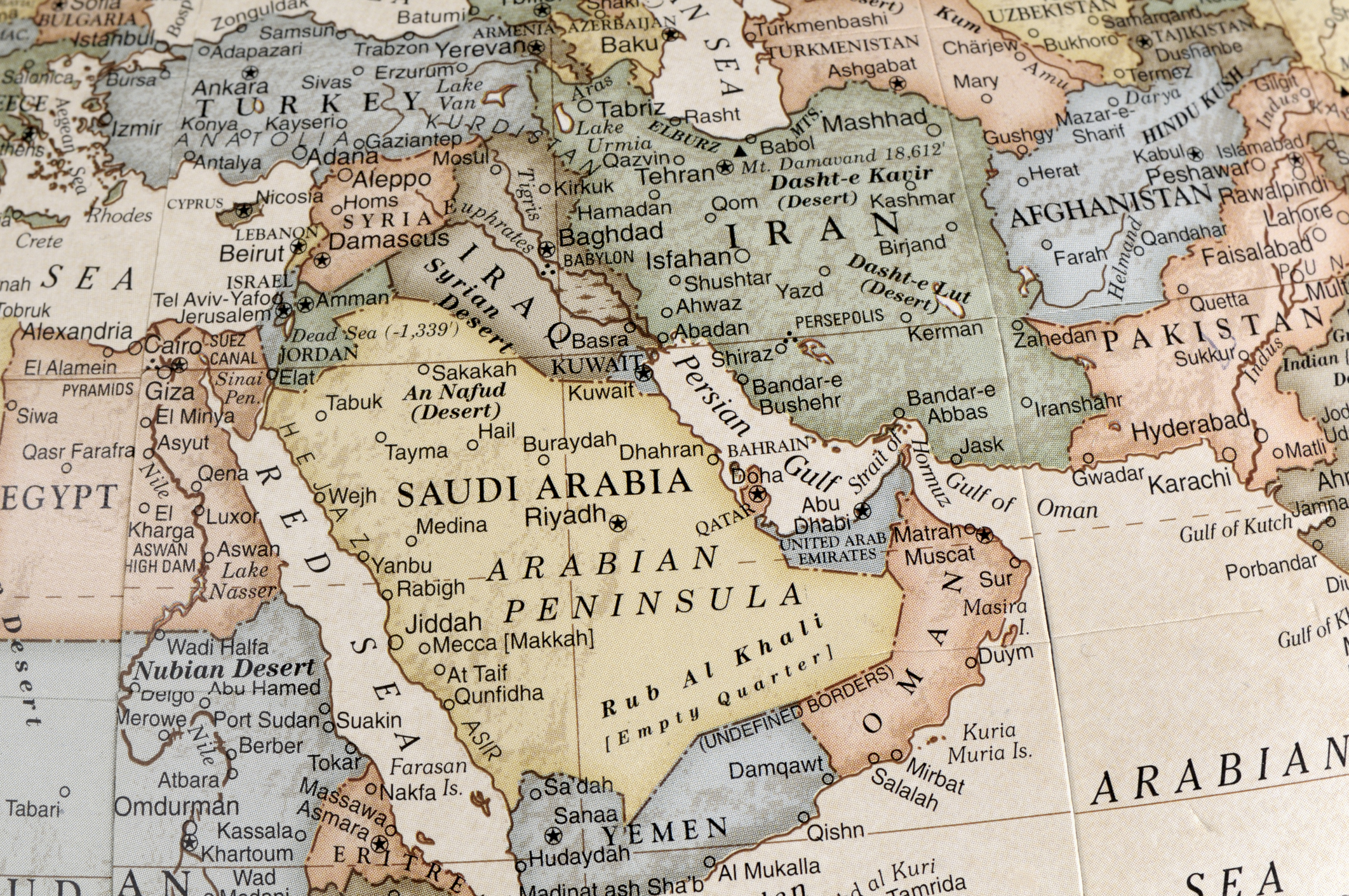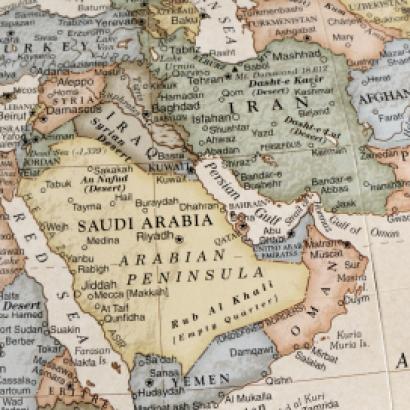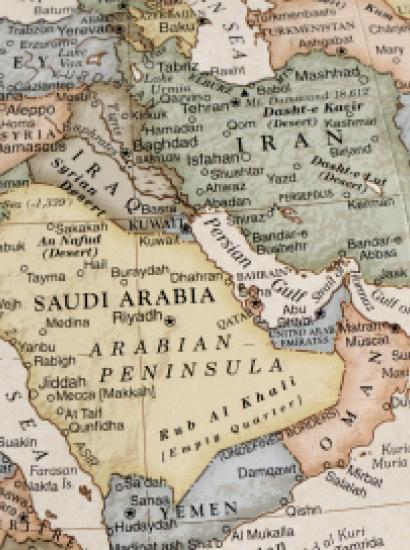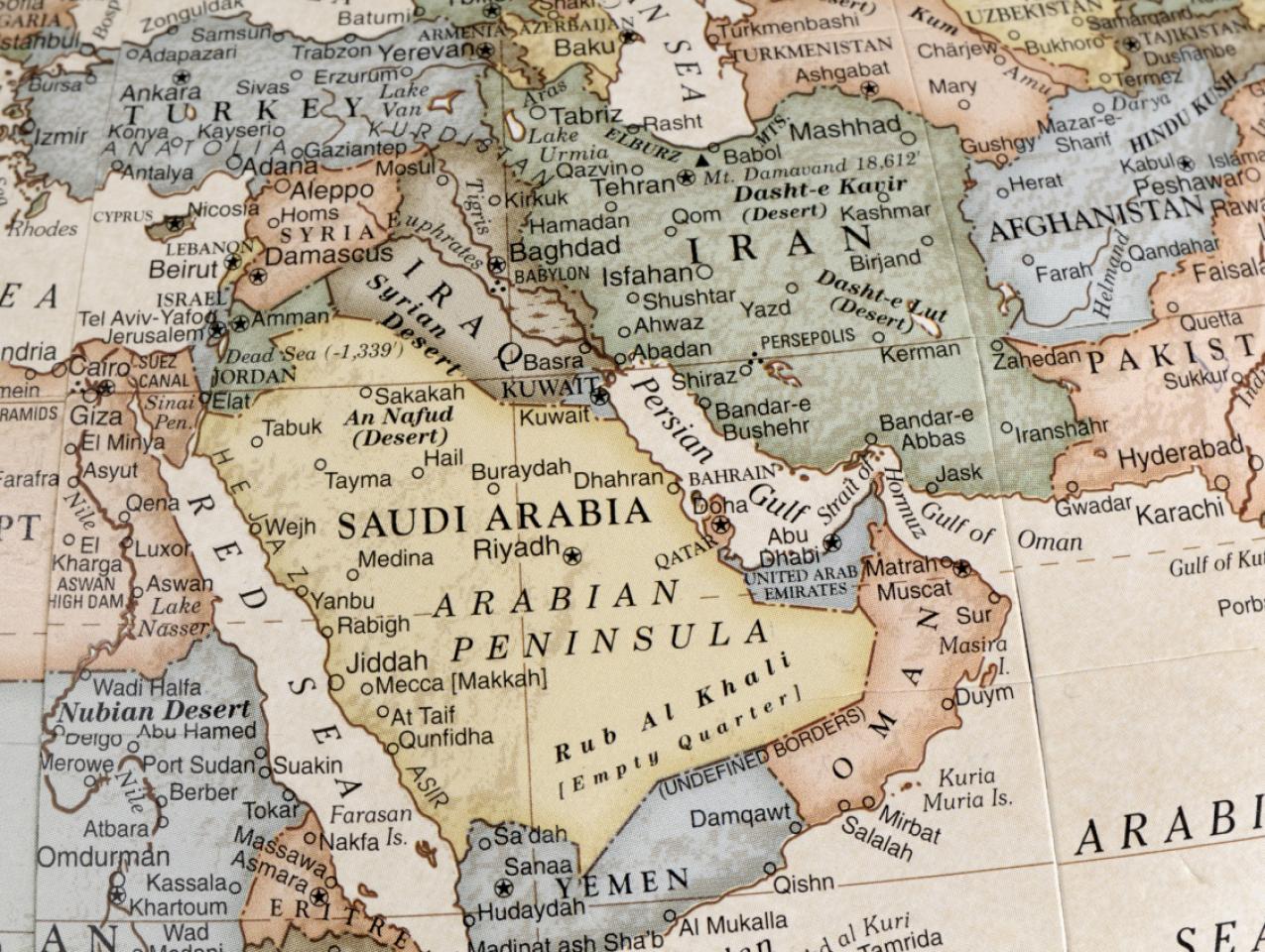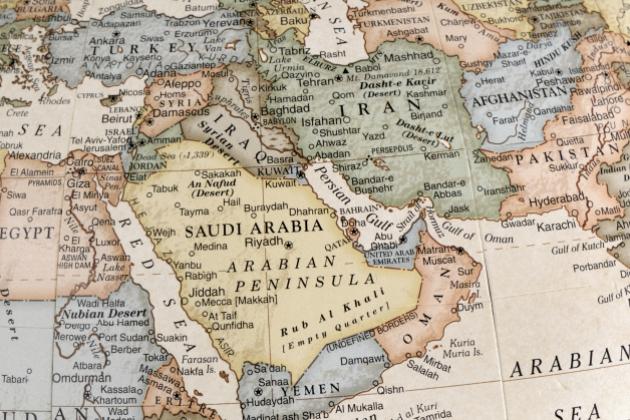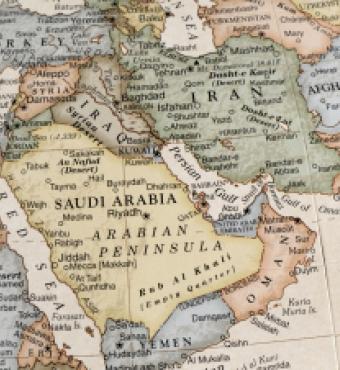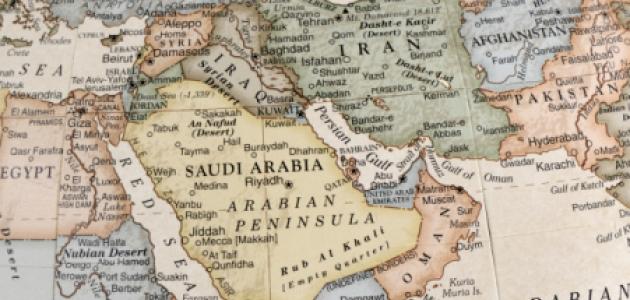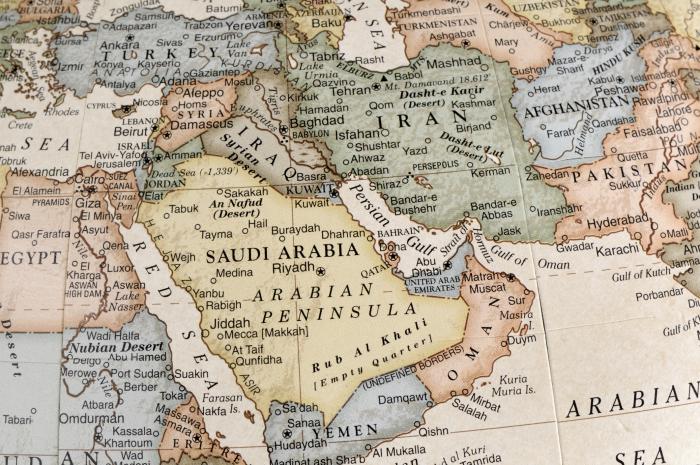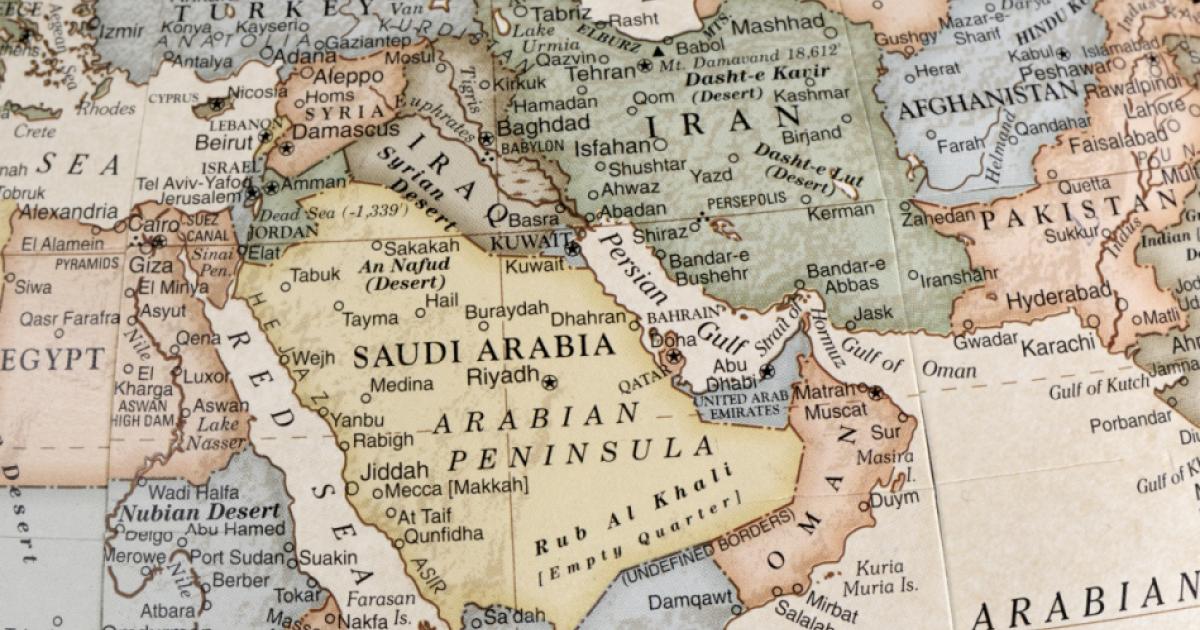- Middle East
- Revitalizing History
It is bitterly ironic that just as world leaders and diplomats were gathering in Munich to participate in the annual Security Conference, the threat of enormous insecurity loomed menacingly over Ukraine. Meanwhile Russia, in collaboration with Belarus, tested ballistic and cruise missiles, clearly intended as a reminder that Russia is prepared to escalate the conflict. Against that backdrop, China came out in support of Russia's demand that Ukraine be forever excluded from NATO, as if Beijing has the right to limit the political choices of independent countries. With that support, Russia invaded Ukraine. Major land war in Europe has returned.
How this confrontation will yet play out and what strategies the US and the West should pursue in the Ukraine crisis are questions that lie far beyond the scope of this essay in the Caravan, which is devoted to issues in the Middle East and the Islamic world. Of course, there is one direct connection to the Middle East in the shape of the strong support Ukraine has been receiving from Turkey, both of which are Black Sea powers: the Ukraine war can also become a Black Sea war and therefore relevant to Middle East strategizing--and then there is the question of the impact on oil prices.
Yet the real implication for the Middle East is different and on a higher level. The US, which is the ultimate guarantor of the international order--in the Middle East and elsewhere--faces a combined threat from Russia, China and their de facto companions, Iran and North Korea. Their goal is to reduce American influence across Eurasia and in the Pacific. Russia wants Ukraine, and China is planning on seizing Taiwan not only for the specific territorial gains but in order to degrade the credibility of the US in international affairs.
This consideration is the focus for all the foreign policy discussions since the Obama administration concerning a "pivot to Asia" or, in the less catchy phrasing, a deprioritization of the Middle East. According to one version of the argument, China is the ultimate challenge to US hegemony in the twenty-first century and therefore the US should redeploy its military assets away from the Middle East, moving them to the Indo-Pacific in order to contain China there. Yet as correct as this assessment of the Chinese challenge is, the conclusion is wrong. Russia has just reminded the world that China is not the only threat. As far as the Middle East is concerned, ceding advantages there in order to expand investments in the Pacific will only create a vacuum which our adversaries will exploit. Russia is already ensconced in Latakia in Syria, and China established its first overseas military base in Djibouti. If we move out, our enemies move in. Because the conflict is global, there is in fact no part of the globe we can leave without benefit to our opponents: see Afghanistan.
Yet at the same time, domestic resource constraints increasingly limit US ability to project power around the world, given the dynamics of the federal budget under pressure from entitlements, unleashed inflation, and debt. Add to this the political pressure of isolationism on the left and on the right, which will increasingly limit defense spending and direct deployments. We are between a rock and a hard place: straddling the urgency of maintaining power to push back against ambitious adversaries and a systemic cap on the resources necessary to support that power.
There is a clear solution to this problem: building networks of allies. While Washington is the strongest voice in the current response to Moscow, the western stance is based on NATO, which, despite the disappearance of the Soviet Union, apparently does still have a role to play, thanks to Putin's revanchism. In the Indo-Pacific the Quad--Japan, India, Australia, and the US--has emerged as a comparably powerful network, as different as it is from NATO. However, alliances by definition bring together several sovereign states, and they can therefore present challenges, due to divergent, if not fully antagonistic interests. Such intra-alliance diversity requires perpetual diplomatic skill to manage, but in the agonistic context of competing superpowers, it is better to have allies than to stand alone. Indeed, the Russian goal has long involved efforts to split the US from its European allies.
And the lesson for US policy in the Middle East? The Middle East lacks a security architecture comparable to NATO or the Quad. US diplomacy should take a lead in building it. Obviously, any security arrangement in the Middle East will not be identical to either NATO or the Quad because of the different circumstances, histories and geographies. However, in the face of intrusions by Russia and China and the efforts at regional destabilization by Iran, and given the implausibility of any major US military reengagement in the region, we need an alliance structure to maintain order, protect freedom of navigation, engage in counter-terrorism and counter malign activities supported by our adversaries.
Fortunately, a number of factors have set the stage for US leadership to build a network of like-minded states. It is now up to Washington to seize this historic opportunity. The current Israeli government is ideologically broad, including, for the first time, an Arab party as part of the governing coalition. Israeli diplomacy has also built important bridges to some Arab states in the wake of the Abraham Accords. The western inclination of key Gulf states is being reinforced by interests in technological integration as well their threat perception concerning Iranian ambitions. The Saudi government has been carrying out a bold reform process unimaginable only a few years ago. Last but by no means least, the red thread that could pull these diverse elements together is the powerful presence of India, whose relations with Israel are flourishing and whose presence in the Gulf, in terms of investment and diaspora populations, is unmistakable. Because it is in American interest to oppose China's Belt and Road initiative, which has made substantial inroads in the region, India is surely a likely partner to counter Beijing and could become the cornerstone of a larger regional security strategy, stretching from the Indo-Pacific to the Suez Canal and into the eastern Mediterranean, perhaps even to Turkey.
That is a grand vision that will require committed American diplomatic leadership. There are also undeniable obstacles. Some problems are relatively local and specific, such as differences among the Gulf states, which Washington could work to resolve. The Palestinian question has lost much of its prominence, but it persists nonetheless; given current leadership in Gaza and Ramallah it may be intractable, but a compromise solution ought to be in reach. The Biden administration's unwillingness to back Saudi Arabia firmly against missile attacks by the Houthis in Yemen is bizarre and should be corrected.
With regard to each of the large states that could become the anchors of a security network--Saudi Arabia, India and potentially Turkey--bilateral relations with the Washington are stuck in unproductive ways: for India and Turkey because of their S-400 purchases and the deleterious role played by sanctions based on CAATSA legislation, and for Saudi Arabia the animosity toward the Crown Prince in the wake of the Khashoggi killing. Potential partners are surely not always blameless, but American foreign policy leadership has to ask some tough questions. Does standing on principle obstruct larger American strategic interests? Entering into a partnership with another country does not mean a blanket endorsement of all of its policies, but it can mean building a partnership to withstand a larger adversary.
In fact, entering into a partnership may even increase the leverage America has to influence a partner's policies, particularly in the area of human rights. This is an issue relevant to all three countries (and not only them of course). At the very least, Washington has to grapple with the question of whether it will treat criticism of rights issues in Saudi Arabia, Turkey and India as reasons to refrain from entering into an alliance structure. Pursuit of rights and pursuit of international security are both legitimate and positive goals; political leadership should find a way to navigate the competition between them and find the right balance.
Finally, the geostrategic perspectives of the various countries that might be part of a Middle East security structure are by no means identical. As the US is perceived to be withdrawing from the area, some regional states are hedging their bets. As Washington cold-shouldered Mohammed bin Salman, he could fly to Beijing, because in a multipolar world, countries have more than one option. Given the ambiguity of US positions in Syria, Israel has had to coordinate with Russia in its attacks on Hezbollah and Iranian positions there. India remains open to Iran, given long-standing historical ties, in obvious contrast to the US. More perplexing was India's decision to abstain from the UN Security Council vote calling for a General Assembly emergency session on the Russian invasion of Ukraine. It remains to be seen whether this was an indication of vestigial affinity for Russia or an effort to carve out a diplomatic role as a potential mediator between the sides of the conflict.
Organizing a security structure in this vast region will not be an easy puzzle to solve, but doing so is vital for US interests in the face of competitive adversaries. Washington should devote considerable diplomatic energy--and other resources--to build connections linking India through the Gulf and into the core of the Middle East. One might think of this as a multidimensional expansion of the Abraham Accords across a much larger expanse. The payoff in terms of regional stability and maintaining American influence could be long-lasting.







